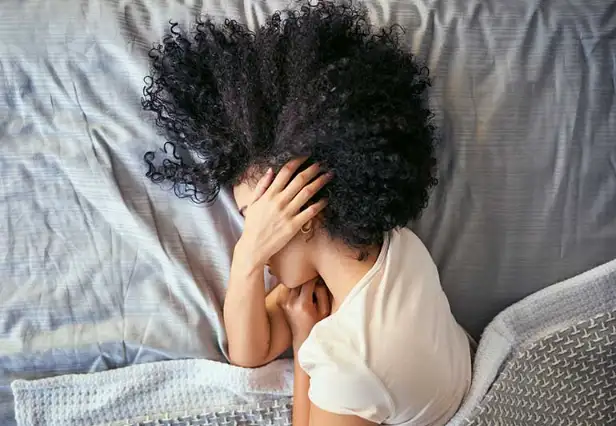
Last updated: 30-01-2024
Waking up with a migraine: what you need to know
Having a migraine after waking up can happen a lot, and it can be hard to deal with. This article looks at why you can get these morning headaches, how your sleep affects them and how you can feel better.
The science behind sleep and migraines
Waking up with a migraine can ruin your day. Studies show that migraines often happen due to changes in your sleep schedule and being disturbed during the night (Kathryn Watson, 2019).
Migraine attacks have a lot to do with how you sleep. Research shows that you often sleep less when you’re about to have a migraine the next morning. This is mainly because you wake up earlier (Niederberger et al., 1998).
Getting a migraine first thing in the morning can also be caused by problems in the REM and non-REM sleep phases (Della Marca et al., 2006).
Characteristics of sleep-related migraines
Migraines that happen while you’re sleeping or when you wake up can be severe. You can even get so used to taking medicine for migraines that you can’t stop (Gori et al., 2015).
These migraines usually don’t affect how long or well you sleep or if you wake up often the next night (Vgontzas et al., 2020).
Managing morning migraines
If you find you’re waking up with migraines a lot, see a doctor. Knowing how you sleep and for how long can help you find ways to stop these migraines.
Conclusion
Morning migraines are tough. But you can feel better if you know why they happen and how your sleep affects them. Knowing your triggers and talking to a doctor can help you stay migraine-free.